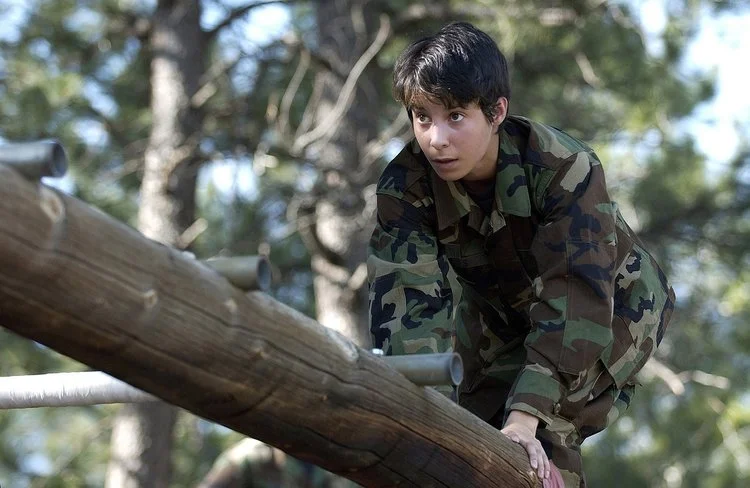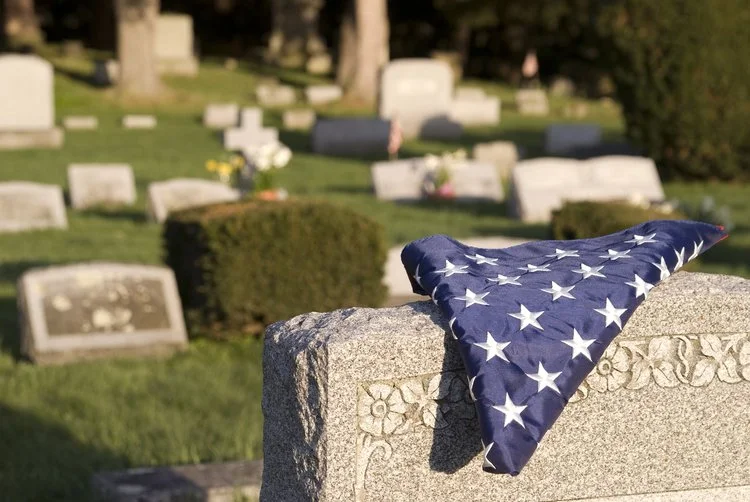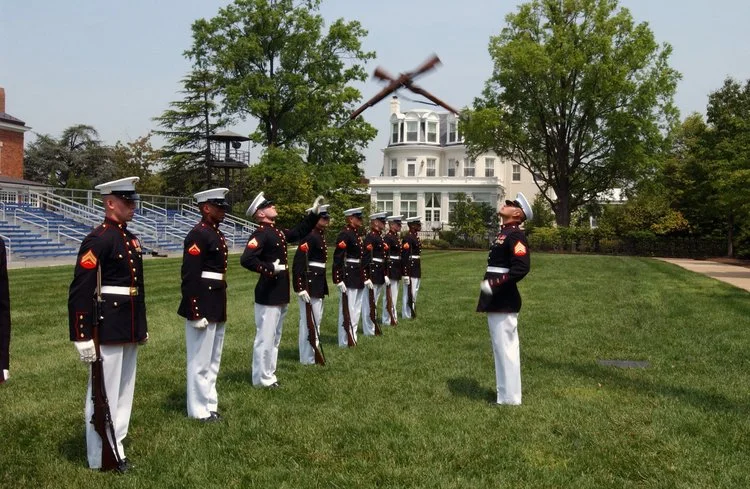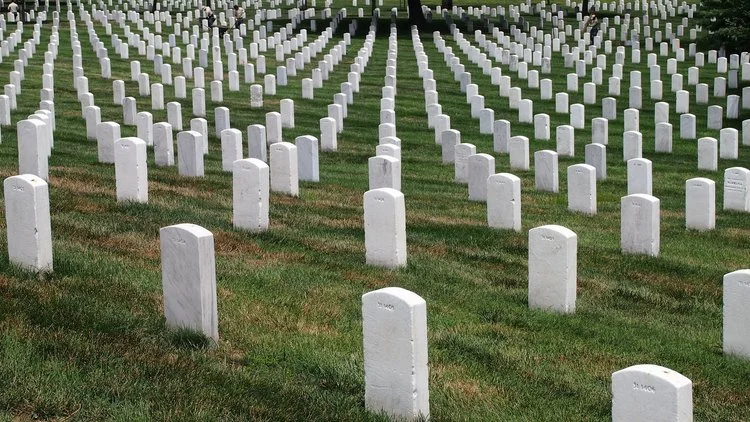Sometimes, events that affect us the most have a difficult time finding their way to the page. It’s been a week since Dustin and I were invited to the Commandant of the Marine Corps General Amos’ house to welcome First Sea Lord, Sir George Zambellas, from the UK and to watch an evening parade at “8th and I,” the “Oldest Post of the Corps.” Even after seven days and driving 600 miles from Washington, D.C., to Maine, I am still profoundly moved by what I experienced.
It is difficult to put into words because the parade involves all the senses. It’s the sound of the cannons firing, and the way you feel it in your sternum. It’s the smell of the smoke rolling in the wind. It’s a flag snapping high above the parade field. And it’s dozens of soldiers perfectly aligned, marching in step, without a single head bouncing up out of line.
It’s the music of “The President’s Own” United States Marine Corps Band and “The Commandant’s Own” Drum and Bugle Corps, and the haunting sound of a singular bugler, lit only by one beam of light, playing “Taps” from atop the barracks roof.
But mostly, it’s the Silent Drill Platoon.
I got to know General Amos’ wife this year when she selected “Dinner with the Smileys” to be on her Recommended Reading List for military spouses. When I told Dustin we had been invited to the evening parade, at first he didn’t believe me. This is a man who has done many exciting things in his life, and although he is in the Navy, he is not afraid to admit that the Marines, and especially the Silent Drill Platoon, have them all beat.
“What you are going to see,” Dustin told me, “you will never forget.”
Dustin looked sharp in his choker whites as we arrived at the Commandant’s house for a reception before the parade. But when a Marine offered to escort me to my seat, Dustin smiled knowingly. I love the Navy, and I’ve been a Navy dependent for 37 years, but those Marines — well, there’s nothing quite like them. If a bear jumped out of the bushes, I was sure this Marine by my side could stop it with one hand and not miss a step or release my arm. In fact, I overheard someone behind me say that the Marine Corps Barracks is the safest block in Washington, D.C.
People don’t mess with Marines.
Sir Zambellas said the same in his speech at the reception. After noting that the British did not burn the Marine Corps Barracks during the War of 1812, he said that even then his predecessors knew not to mess with the Marine Corps.
The Marines are quietly polished. They are dedicated. And they are disciplined to a level beyond comprehension. For one and a half hours, five platoons stood in place, not moving a muscle (quite literally) or swaying in the slightest.
Anyone who witnesses the parade can imagine how formidable these men and women would seem in combat. Before the platoons came out from behind a breezeway shrouded by shrubs, we could hear them. We heard their footsteps, their commands and the clinking of their weaponry.
“The Marines are coming! The Marines are coming!” I thought. It’s the same thought I had while running a 5K in Pensacola, Florida. I heard the rhythmic thump of their footsteps and turned around to see about one hundred Marines in line and running toward me on the route. Dustin pushed me up onto the curb yelling, “Get out of the way, the Marines are coming!”
In the eery half-darkness of the parade field, as the Marines’ footsteps echoed from behind the bushes, I thought it again: “Get out of the way, the Marines are coming.”
Even the drum major, who had to be well over 6 feet tall and was made taller by the large bearskin hat, looked frightening. He didn’t smile or sway as he marched down the field. He moved fluidly and made no noise through the stillness of the night.
And then the Silent Drill Platoon came forward. If you’ve never seen their demonstration, you need to watch a sample of it here: http://www.youtube.com/watch?v=ToLDdFQoXnU. Their precision and timing defies absolutely everything you thought humanly possible. I will never forget their expressionless faces half illuminated and half not.
After the parade, the band played the Navy Hymn, “Eternal Father,” and I’m certain everyone — even all those stoic admirals and generals — had goosebumps. How could they not? Each gentle rise of the notes brought tears to my eyes as I thought of military friends we’ve lost and the wounded warriors seated in front of us.
That’s when I realized: the parade was fascinating to us, but it’s not for us. It’s clear the Marines are doing it for them — the lost and wounded. That’s where their discipline and dedication comes from.
And, honestly, no other group looks quite as good doing it.








